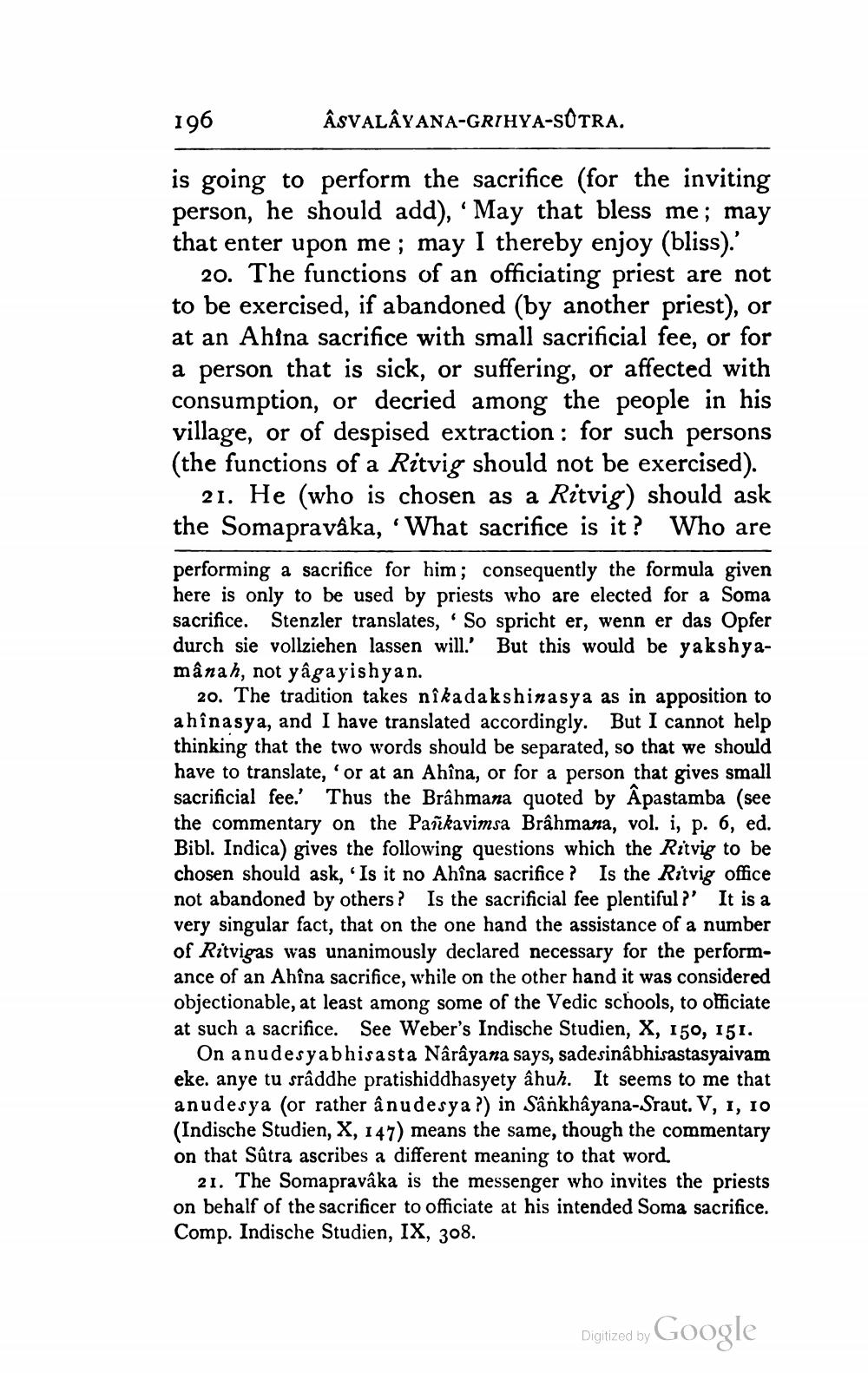________________
196
ÂSVALAYANA-GRIHYA-SÓTRA.
is going to perform the sacrifice (for the inviting person, he should add), ‘May that bless me; may that enter upon me; may I thereby enjoy (bliss).'
20. The functions of an officiating priest are not to be exercised, if abandoned (by another priest), or at an Ahina sacrifice with small sacrificial fee, or for a person that is sick, or suffering, or affected with consumption, or decried among the people in his village, or of despised extraction : for such persons (the functions of a Ritvig should not be exercised).
21. He (who is chosen as a Ritvig) should ask the Somapravaka, 'What sacrifice is it? Who are performing a sacrifice for him; consequently the formula given here is only to be used by priests who are elected for a Soma sacrifice. Stenzler translates, 'So spricht er, wenn er das Opfer durch sie vollziehen lassen will. But this would be yakshyamânah, not yâgayishyan.
20. The tradition takes nîkadakshinasya as in apposition to ahinasya, and I have translated accordingly. But I cannot help thinking that the two words should be separated, so that we should have to translate, or at an Ahîna, or for a person that gives small sacrificial fee.' Thus the Brahmana quoted by Apastamba (see the commentary on the Parkavimsa Brâhmana, vol. i, p. 6, ed. Bibl. Indica) gives the following questions which the Ritvig to be chosen should ask, "Is it no Ahîna sacrifice? Is the Ritvig office not abandoned by others? Is the sacrificial fee plentiful?' It is a very singular fact, that on the one hand the assistance of a number of Ritvigas was unanimously declared necessary for the performance of an Ahîna sacrifice, while on the other hand it was considered objectionable, at least among some of the Vedic schools, to officiate at such a sacrifice. See Weber's Indische Studien, X, 150, 151.
On a nudesyabhisasta Narayana says, sadesinâbhisastasyaivam eke. anye tu sraddhe pratishiddhasyety âhuh. It seems to me that anudesya (or rather ânudesya?) in Sânkhâyana-Sraut. V, 1, 10 (Indische Studien, X, 147) means the same, though the commentary on that Sûtra ascribes a different meaning to that word.
21. The Somapravâka is the messenger who invites the priests on behalf of the sacrificer to officiate at his intended Soma sacrifice. Comp. Indische Studien, IX, 308.
Digitized by Google




